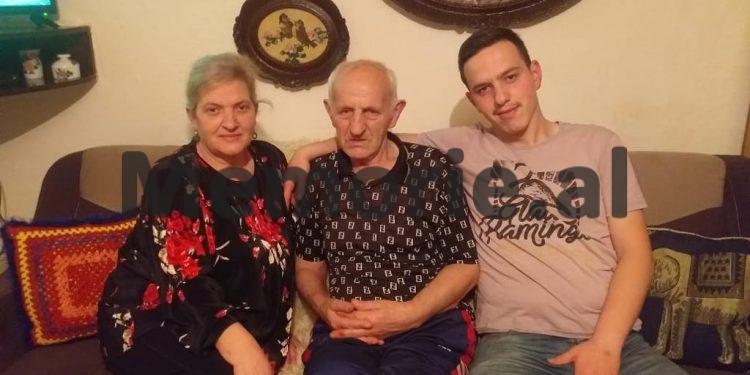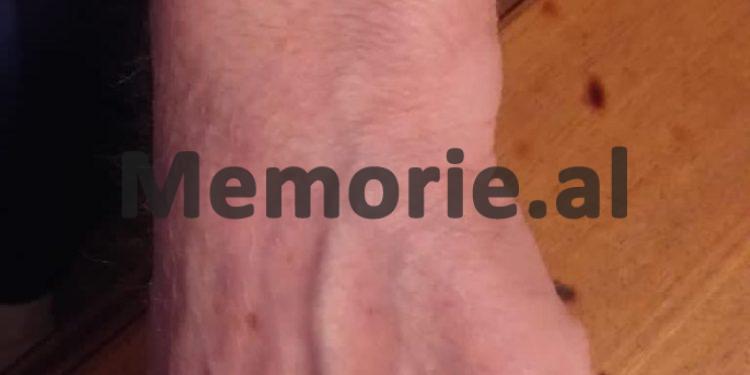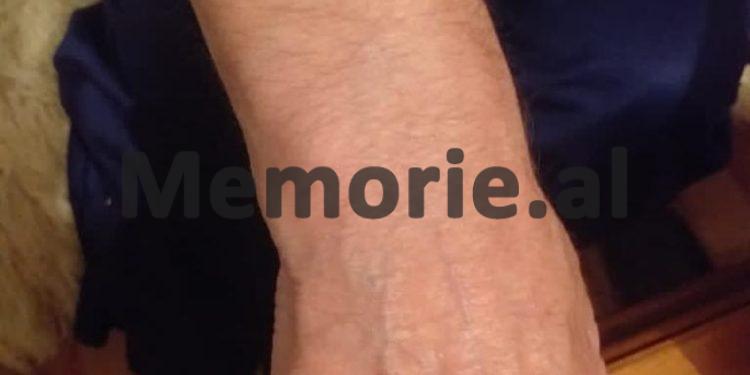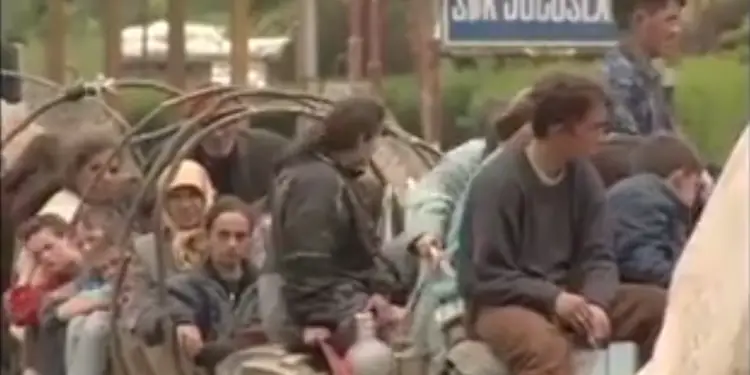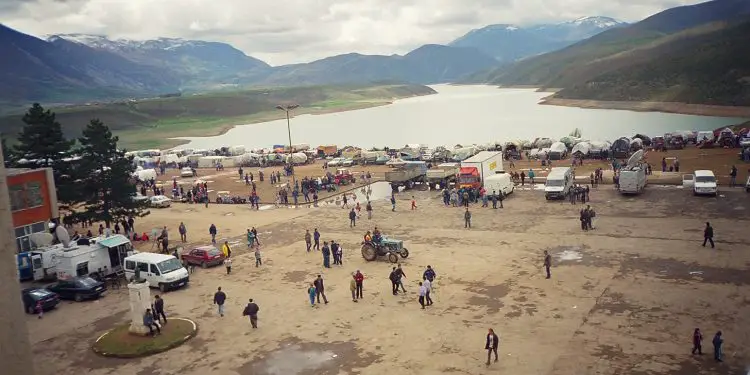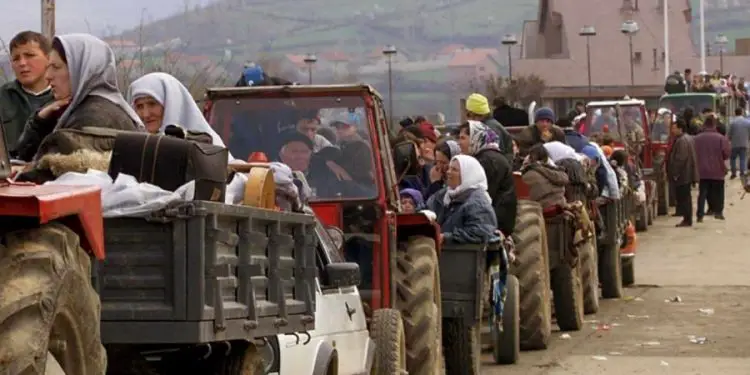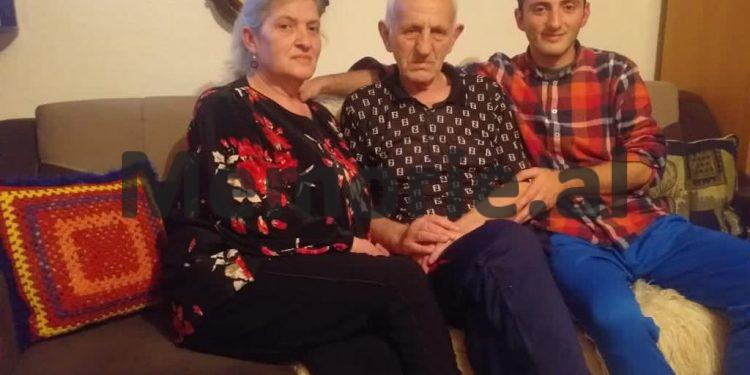Dashnor Kaloçi
Part seven
Memorie.al/publikon the unknown story of Jetullah Gashi, originally from the village of Mramor in Prishtina, who in 1964, when he was a high school student, decided to flee and cross the state border in the area of the village of Zogaj in the district of Tropoja, where for several days, interrogating him in the Internal Affairs Branch of the city “Bajram Curri”, they brought him to the town of Shijak, placing him in a State Security base, which was called “The filtering center of Kosovar emigrants”, who fled Yugoslavia and came to Albania, where for several months he underwent intensive investigation by State Security officers coming from the Ministry of Internal Affairs and covering “Kosovo emigration”.
He was sent to the district of Korça where he finished high school in the town of Maliq and then in Tirana, where he attended higher university studies at the Faculty of Medicine, which he completed in 1971 and was appointed in Elbasan as a nearby doctor. The hospital of that city. His arrest in 1977 after some time of surveillance and persecution by the State Security organs, “as an agent of the UDB”, where after several months of inhuman torture, he was sentenced to 25 years in political prison, which suffered in the camps of Spaç, Qafë-Barit, Burrel, etc., the extraordinary gesture of Jetullah Gashi while serving his sentence, handing over the white shirt of the doctor and entering to work in shifts in the gallery of Spaç, from where he was released at the beginning of 1991, with the overthrow of the communist regime.
It was August 30, 1964, when I, after cutting the train ticket from Pristina to Skopje (where I was working with my father), all the way, just thought about how I would get to Albania, which I had so many days to grind. In head. At that time I did not have any information about the state border, Yugoslavia – Albania and based on this fact, I went to the bus station in Skopje, where I cut the bus ticket to Gjakova and arrived there in the late hours of the night. I got off the bus and did not know where to go, as I had never been to Gjakova. I made every effort to avoid people and took the road that had less traffic. At the end of this road, I saw a bakery, bought some buns and continued the same road direction in the dark of night. On the right side of the road, I saw a fence, which I crossed and entered the garden. I decided to sleep there. Near the siege, I found a safe place that protected me, as there were occasional dog barks, but after a while they ceased. Tired I had fallen asleep. I woke up in the morning, after looking around the place, got up, crossed the fence and went out on the street again. My cousin Kadriu had told me that the border to Albania passes through the tops of some bare hills “. This is how 75-year-old Jetullah Gashi from Kosovo remembers the moment of his escape from Yugoslavia to Albania, where after graduating from the Faculty of Medicine in Tirana and serving for several years as a doctor in the hospital of the city of Elbasan, in April 1977, he was arrested. by the State Security, being charged as a “UDB agent” and sentenced to 25 years in prison. Torture during the investigation and the sentence of 25 years in prison, the long ordeal in the camps and prisons of the communist regime of Enver Hoxha until the beginning of 1991, being released with the last convicts who came out of the “communist hell”, leaving for Switzerland to his relatives, returning to Albania and finally leaving for Kosovo, where he still lives with his family. Regarding these and other events and facts from his painful life, Doctor Jetullah Gashi, testifies exclusively for Memorie.al
Continued from the previous issue
Mr. Jetullah, so you have not regretted coming to Albania…?!
I cannot say that I regretted coming to Albania, as I spent my most beautiful years in our beloved homeland, here in Albania. But I also emphasize that, while I was finishing high school in the town of Maliq, I had to work on the farm in Vloçisht, to provide money for books and school supplies. Also, during my studies at the Faculty of Medicine at the State University of Tirana, we Kosovar students did not have any financial problems, because in addition to the scholarship of 3,200 money, (new), we also received 1,500 money from the Executive Committee of Tirana.
What about after graduation, while working as a doctor, how were you treated?
After graduating in September 1972 and until April 1977, I worked with my dedication as a doctor to serve people to the best of my ability. During all these years, I did not face the slightest problem of being considered a foreigner or a Kosovar. Those people always considered me as their closest man. It is absolutely nonsense of those who think that the people have been guilty of everything that happened in the past in the communist regime in Albania.
After returning to Kosovo, did you decide to start a family?
After I was deported from Switzerland for the reasons I explained above, I stayed with my father. I felt that even when I slept at night, he would get up slowly so as not to wake me up and look at me with care. I pretended to sleep and watched him sit in the chair looking at me. He told me that I should meet a girl and get married. But I at the time was between two dangers. I had not told anyone the details of my time in prison, I had just told you that Lirim Pëllumbi was the cause of my arrest and sentence. I told them that they had done nothing to do to me, and if I had not accepted what they told me, you would not see your son today, that is, me, because I would be lying dead in a cell of Elbasan. The propaganda of the regime of Enver Hoxha, had done its own thing on the Albanian people of Kosovo. You could not talk freely with anyone in Kosovo, because they immediately said that: ‘this has been put in prison by the Albanian state’. You could not leave the house and go to the sisters and meet the grandchildren, because it seemed to me that everyone was prejudiced against me, and they thought that my punishment was my fault, because ‘he would have done something they had condemned ‘.
With my father’s constant request to see me with a comfortable family, I met my life partner, Shukrie Demolli, who was a midwife by profession, but the repressive measures taken in the 1990s by the then regime of Slobodan Milosevic, they had left him without a job, after he had been discharged from the Gynecology-Obsetric Hospital in Prishtina. Shukria was married to Abdyl Cakaj, who had died of an illness, from this marriage she had a daughter, Krenare Cakaj, who we raised together, educated and created all opportunities for education and created her family.
What other children do you have?
On June 14, 1994, we experienced the greatest joy, the birth of our son, Kreshnik Gashi. On January 29, 1997, we experienced another great joy with the addition of our family with the birth of two twin boys, whom we named Drilon and Dardan. Dardani had no life expectancy and on February 28, 1997, he passed away.
Where did you live with your family?
On March 31, 1999, at 2:00 pm, after I had moved from my house in the Ulpiana neighborhood, and settled in my sister Hamide’s house, the numerous Serbian paramilitary forces arrived at the door of my sister’s house. They forcibly ordered us all to go outside, and no one should dare to object, that it would have serious consequences for life. And so it happened, my wife and children and I went out, and the sister with the children. The street was crowded with men and women, the elderly and children. At the end of the road were placed numerous masked forces, with their weapons on standby to shoot any opponent.
What happened next?
According to their order, lined up two by two, on the left side of the road, I started to check, and to allow the passage, I had to present everything in front of them, and starting from the notification letter and the income you had with you. It was my sister’s turn who was with her daughters and sons. At this moment, two of them were looking at my granddaughter, and they addressed the sister, that this (for the girl), will stay with us, after we do work, to serve us coffee and pieces. They took the granddaughter, separated her on the other side of the road and her sister, Hamdie, started screaming, and ran to her daughter to take her under protection.
Here it…?
At that moment, the rest of us were still checking on us, until we passed with the little boy 2 years old next to us, everyone passed, I had my grandchildren, my wife, my children there, only my sister and granddaughter were left without passing. Military, police and paramilitary troops were stationed on every street corner. There were armored vehicles and machine guns at every crossroads. In every street of Prishtina you could see people coming from all over and when we approached the Technical School, there were again armored vehicles and weapons on standby. As we passed the big mosque about 200 m. before we reached the Bricave Mosque, there were no more military uniforms.
What did you do at that moment in that place where there was no more military force?
We took the road leading to the train station and along the way, I saw with my own eyes, looted shops and broken windows. When we took the turn to go to the train station, I saw the stadium filled with hundreds and hundreds of old people, men, women, young and old children, so crowded that there was no place to sit. Crowded buses came and went. Meanwhile the train came and it filled up, and I with my family, with my sisters and grandchildren, could not get on the train that cold evening.
What did you do because you could not get on the train?
We were sitting piled up in a corner, not knowing where we were going and what was waiting for us? The night was cold and we had nothing to cover the children with. I removed the jacket from my body to wrap it, but that was not enough. The buses came often and at 11.40pm the train came, where people rushed whoever got on first, but we still could not. On the morning of April 1, 1999, at about 8:20 a.m., the train arrived, and I told my friend Ilir, a friend of his, to make every effort to board the train. Meanwhile, people rushed to get in as soon as possible, both from the door and from the windows, with great difficulty we all got on the train and around 9.00, the train started moving.
Where was that train going…?!
We were all anxious about what his destination would be and, seeing the armed forces stationed in the wagon divisions when the train was in Fushë Kosovë / Kosovo Polje, we were worried about what the route would be. Take the train right, or left! The train took the road to the left and none of us, was calm, we gave each other courage. The train arrived in Ferizaj, did not stop, but continued its way to Kaçanik. Before the train entered the tunnel, I thought that Slobodan Milosevic’s regime in this tunnel would not have prepared the extermination of the people, but the train left the tunnel at the same speed and we approached Hani i Elezit, slowing down the speed in the area. Border, between the Yugoslav Republic of Macedonia.
What happened in that border area?
There they ordered us to get off the train and warned us not to dare to cross to the right side of the railway because the rest was mined. As you passed a little height, a large plateau appeared, filled with hundreds of tents in that territory. A family in a tent, and so we too pitched our tent, while vehicles with food and water, came through our tents. At that border point of Bllaca, dozens of buses came every day to transfer us after staying for several days in this camp.
How long did you stay there?
On April 6, 1999, in the afternoon, we were informed that we were leaving and the bus convoy started moving around 11.30 pm, and after a few bridges, the journey continued to Ohrid, but did not stop! There I understood and told my sister’s wife that we were going to Albania. At dawn we passed Pogradec and I was immediately reminded of what I had experienced on October 28, 1964, when I fled Kosovo and entered Albania.
Where did you settle after you came to the Albanian territory, so you entered Albania?
I, together with my family and many other Kosovar families, arrived in the city of Korça where I had been 36 years ago working as a doctor. There we were fortunate to have a generous and hospitable people waiting for us. When we arrived at the stadium in Korça, and each family with their families sat on the steps of the stadium “Skënderbeu”, it was not long before, when in the stadium, appeared high school boys and girls, who, equipped with food and water, distributed and hugged their peers.
How did you feel in those moments, after coming to a city where you had lived and worked?
I felt great joy that I was not disappointed in anything by the wonderful people of Korça. Many Kosovar families were housed in Korça families, but most were housed in Korça village families. Representatives of the Municipality of Korça were searching the houses of the surrounding villages to find apartments for us and my large family. At this time I addressed the representatives of the Municipality and told them that I have many friends in Korça that I finished high school in Maliq and worked as a doctor for a year in Korça. And so I told him that my closest friend is, Petrit Bazelli.
Could you meet your friend, Petrit?
Yes, Petrit and his whole family welcomed us with brotherly love and warmth and he criticized me for not going directly to his house, but I apologized, saying that I was accompanied by sisters with their families where we became very members. Petrit, helped us a lot by finding shelter, even for sisters with children and during all the time we stayed there, from their hospitality, we felt like home.
When did you return to Kosovo, to your homes?
We returned to Kosovo on July 11, 1999, around 1400. From that time until now, although I am surrounded and live with my brothers, grandchildren, and many great friends, I do not forget about no moment, that the most turbulent years of my life, I spent in Albania. Although at this age, I often go to Tirana, where I meet my friends, accomplices in prison, such as Qani Sadiku (originally from the village of Markat, Saranda), one of my closest friends, with which I have divided our most difficult days in camps and prisons./Memorie.al




